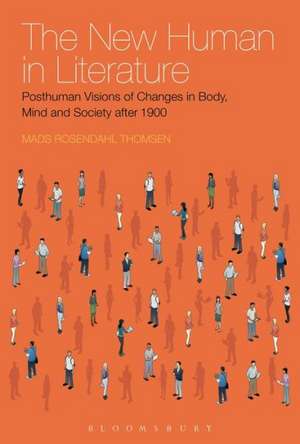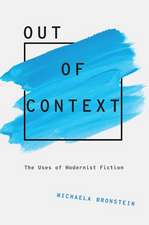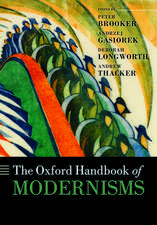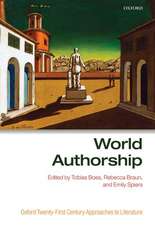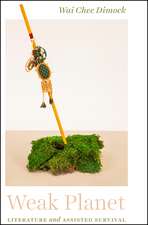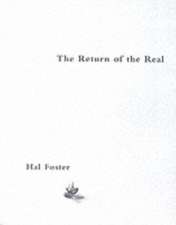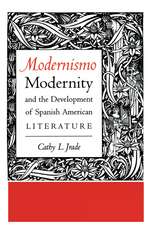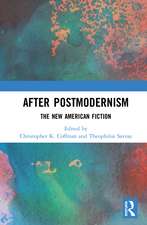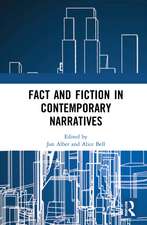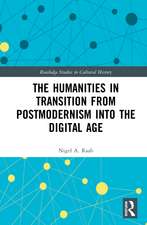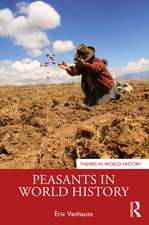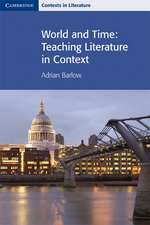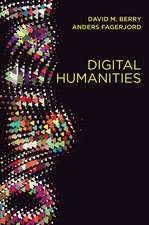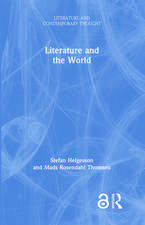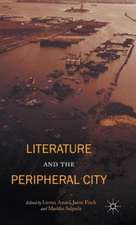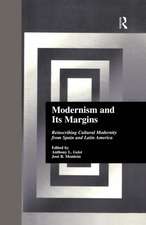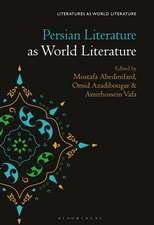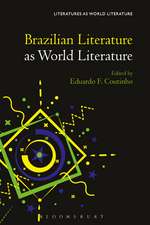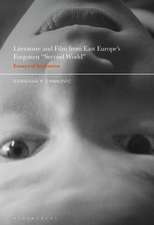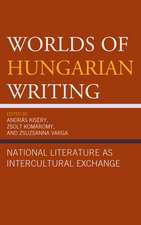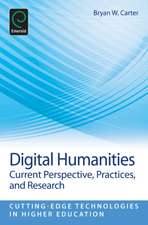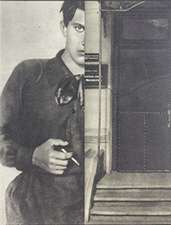The New Human in Literature: Posthuman Visions of Changes in Body, Mind and Society after 1900
Autor Dr Mads Rosendahl Thomsenen Limba Engleză Hardback – 25 sep 2013
| Toate formatele și edițiile | Preț | Express |
|---|---|---|
| Paperback (1) | 257.97 lei 6-8 săpt. | |
| Bloomsbury Publishing – 11 mar 2015 | 257.97 lei 6-8 săpt. | |
| Hardback (1) | 774.20 lei 6-8 săpt. | |
| Bloomsbury Publishing – 25 sep 2013 | 774.20 lei 6-8 săpt. |
Preț: 774.20 lei
Preț vechi: 990.70 lei
-22% Nou
Puncte Express: 1161
Preț estimativ în valută:
148.14€ • 161.42$ • 124.83£
148.14€ • 161.42$ • 124.83£
Carte tipărită la comandă
Livrare economică 23 aprilie-07 mai
Preluare comenzi: 021 569.72.76
Specificații
ISBN-13: 9781441183194
ISBN-10: 1441183191
Pagini: 256
Dimensiuni: 156 x 234 x 20 mm
Greutate: 0.54 kg
Ediția:New.
Editura: Bloomsbury Publishing
Colecția Bloomsbury Academic
Locul publicării:London, United Kingdom
ISBN-10: 1441183191
Pagini: 256
Dimensiuni: 156 x 234 x 20 mm
Greutate: 0.54 kg
Ediția:New.
Editura: Bloomsbury Publishing
Colecția Bloomsbury Academic
Locul publicării:London, United Kingdom
Caracteristici
Provides original readings of modern classics from William Carlos Williams to Chinua Achebe and Don DeLillo.
Notă biografică
Mads Rosendahl Thomsen is Professor with Special Responsibilities in Comparative Literature at Aarhus University, Denmark. He is the author of Mapping World Literature: International Canonization and Transnational Literature (2008), The New Human in Literature: Posthuman Visions of Changes in Body, Mind and Society (2013), and the editor of several volumes, including World Literature: A Reader (2012) and The Posthuman Condition: Ethics, Aesthetics and Politics of Biotechnological Challenges (2012). He is a member of the Academia Europaea and an advisory board member of the Institute for World Literature.
Cuprins
Acknowledgements Introduction Part 1 The Triune Human1 A Systemic View of the Human 2 An Emerging Cultural History of the Twentieth Century3 History, Technique, Imagination4 The New Human and the Medium of LiteraturePart 2 Self-modernization5 Virginia Woolf 6 William Carlos Williams 7 Louis-Ferdinand Céline Part 3 The Grand Projects 8 Chinua Achebe 9 Mo Yan 10 Orhan Pamuk Part 4 The Final Frontier 11 Literature as Lab 12 Don DeLillo 13 Michel Houellebecq Conclusion Notes Bibliography Index
Recenzii
Both a meditation on the status of literature and on that of the human, this book has the tact to treat these two concerns as parallel, but related - not identical. The result is a salutary reminder of the fragility of all "autopoiesis." The New Human in Literature shows how indispensable to ideas of species identity and culture the technological imagination has always been.
The relevance of literature is to address the problems associated with modern biotechnology and information technology dilemmas without presenting "under-complex" solutions; the challenge that modern life sciences pose for literature is to find new meaning in the old idea of the "new man". Mads Rosendahl Thomsen's study has accomplished to have developed this exchange in a theoretically demanding and rich way.
The refreshing thing about The New Human is that it tackles the rise of posthumanism - or the intensifying debate about human evolution, transformation and succession, which is led from a variety of angles (the spectrum goes from critical posthumanism to transhumanism one could say) - from a historical angle and thus takes a longer term view (i.e. from around 1900). So even though it is aware of the current environment of vast technological change mainly due to biotechnology and digitalisation, its focus is on how these changes are philosophically and aesthetically underpinned by the rise of the idea of a renewal of humanity ('the new human') in modern literature... ...The methodological approach the volume takes is also a major strength......One might think, against the run of the argument that this doesn't bode well for the future of literature might there be something essentially 'humanist' about the literary, after all? Or are 'we' currently just facing a temporal horizon within literature¹s history, which momentarily precludes 'us' from imagining a postliterary future in the humanist sense? It is arguably the formulation of this paradoxical nature of literature in dealing with the 'new human' that constitutes the most important achievement of Thomsen's study.
The relevance of literature is to address the problems associated with modern biotechnology and information technology dilemmas without presenting "under-complex" solutions; the challenge that modern life sciences pose for literature is to find new meaning in the old idea of the "new man". Mads Rosendahl Thomsen's study has accomplished to have developed this exchange in a theoretically demanding and rich way.
The refreshing thing about The New Human is that it tackles the rise of posthumanism - or the intensifying debate about human evolution, transformation and succession, which is led from a variety of angles (the spectrum goes from critical posthumanism to transhumanism one could say) - from a historical angle and thus takes a longer term view (i.e. from around 1900). So even though it is aware of the current environment of vast technological change mainly due to biotechnology and digitalisation, its focus is on how these changes are philosophically and aesthetically underpinned by the rise of the idea of a renewal of humanity ('the new human') in modern literature... ...The methodological approach the volume takes is also a major strength......One might think, against the run of the argument that this doesn't bode well for the future of literature might there be something essentially 'humanist' about the literary, after all? Or are 'we' currently just facing a temporal horizon within literature¹s history, which momentarily precludes 'us' from imagining a postliterary future in the humanist sense? It is arguably the formulation of this paradoxical nature of literature in dealing with the 'new human' that constitutes the most important achievement of Thomsen's study.
